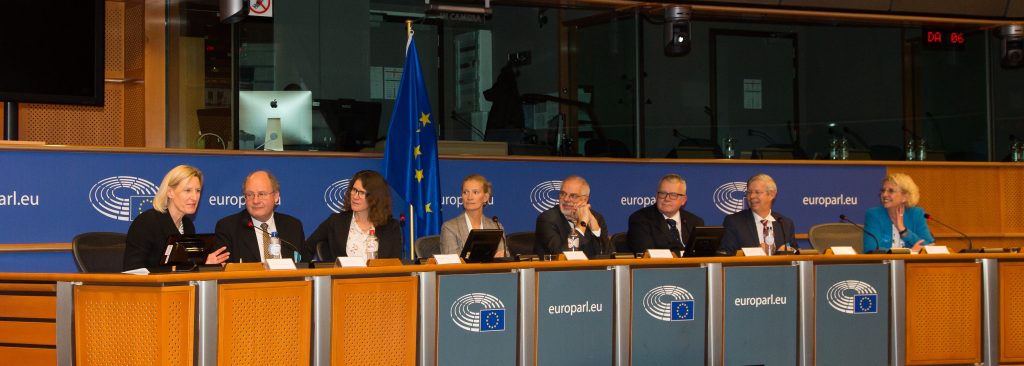
Five years after the project’s kick-off, EFCNI, in the role of the project lead, gave a reception with panel discussion at the Representation of the Free State of Bavaria to the European Union on 27 November 2018. Under the slogan: “Newborn Health Reloaded. Shaping our babies’ future”, about 100 project members, stakeholders, medical experts and Members of the European Parliament (MEPs) gathered to debate the current status and future prospects in newborn health. In his keynote speech, Professor Dr Matthias Keller (Director Children’s Hospital “Dritter Orden” Passau, Germany and Associate Professor at the Technical University Munich) highlighted the importance of overcoming those barriers impeding the process of transforming the Neonatal Intensive Care Unit (NICU) into a clinically progressive yet family-centred place when providing newborn care. “There is no easy answer to such a complex issue like preterm birth. Implementing harmonised standards of newborn care is one crucial way to tackle this compound question”, stated Keller. The following panel discussion, hosted by journalist Sibylle Bassler, brought up insightful statements from the perspective of project leaders, members and supporters. Funding issues in regards to neonatal care and therapy as well as the necessity to invest in continuous, high-quality education of the clinical staff, for instance, were only a few aspects mentioned by the panel. The panel was then followed by a vivid discussion with the audience.
The following day, the European Standards of Care for Newborn Health (ESCNH) were presented to the public in the context of a workshop at the European Parliament. Speakers from several disciplines added to the event “Mission Impossible – Take responsibility for newborn health in Europe”, pointing out the need for standards and guidelines in neonatal care to ensure equity in healthcare provision for the smallest individuals of our society. In this view, Professor Dr Berthold Koletzko concluded his talk with a clear message: “It is not enough to read the standards. Discuss them and implement them”. “We need the implementation of the standards so that future generations benefit from a different, equitable system of care,” added Silke Mader, co-founder and Chairwoman of the Executive Board of EFCNI. Consequently, a Call to Action was presented which demands that policy makers, hospital administrators, insurers, professional societies, patient associations, and industry work together on the implementation of the ESCNH at national level. More than 100 politicians, the project’s experts and supporters, parent representatives as well as several key stakeholders and speakers from organisations like the World Health Organization (WHO) joined the launch event and signed the Call to Action. Cordial thanks go to MEP Professor Dr Angelika Niebler and MEP Dr Peter Liese for hosting this event and to the parliamentary speakers, listed below, for their contributions.
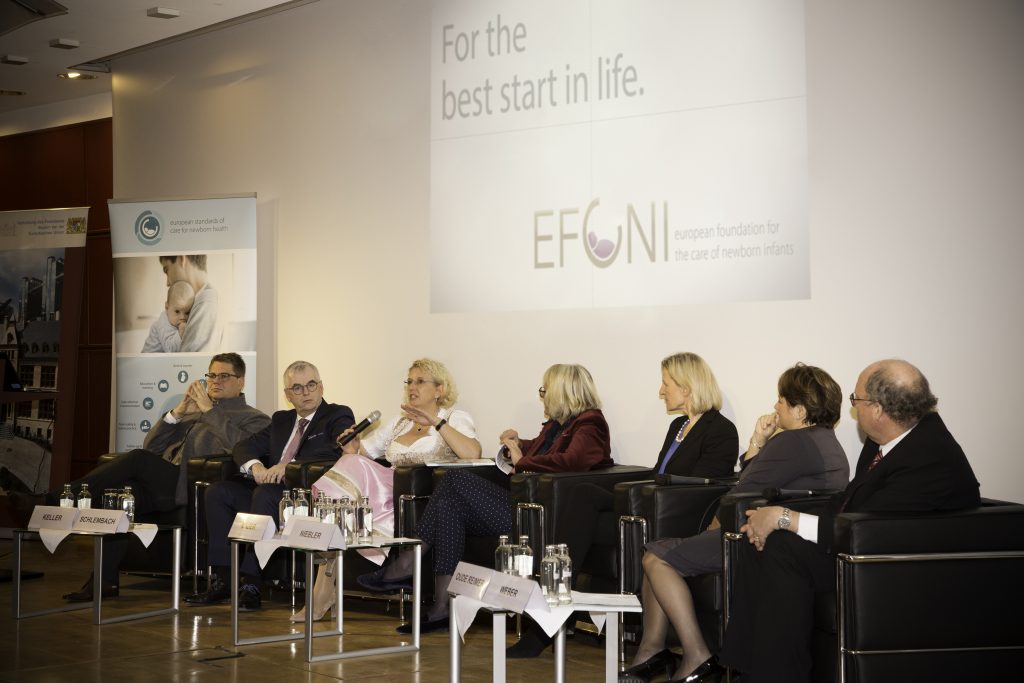
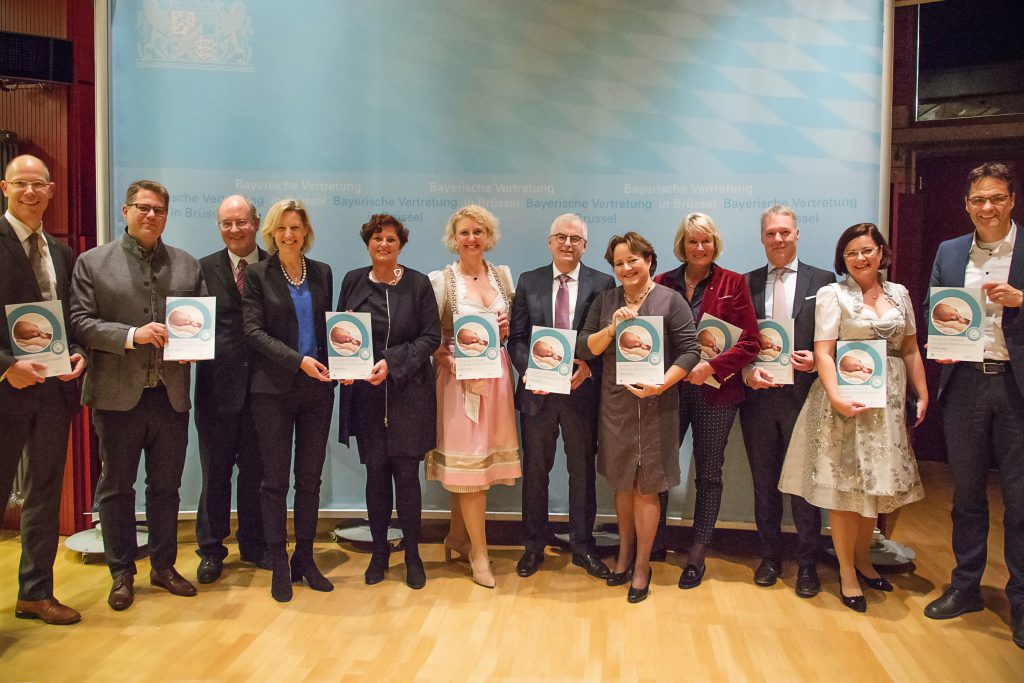
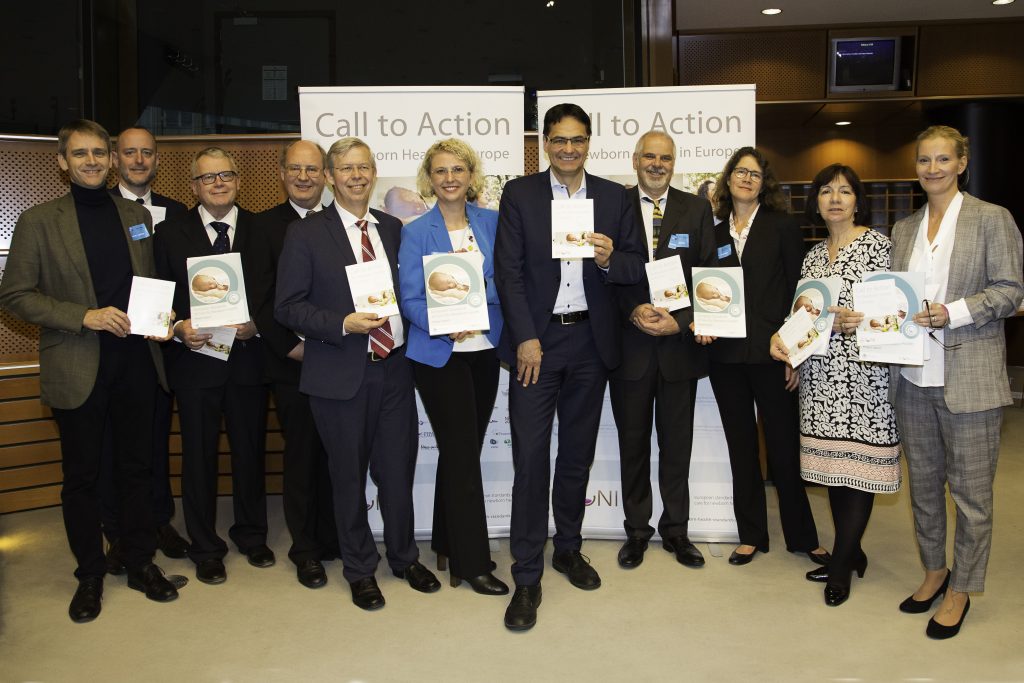
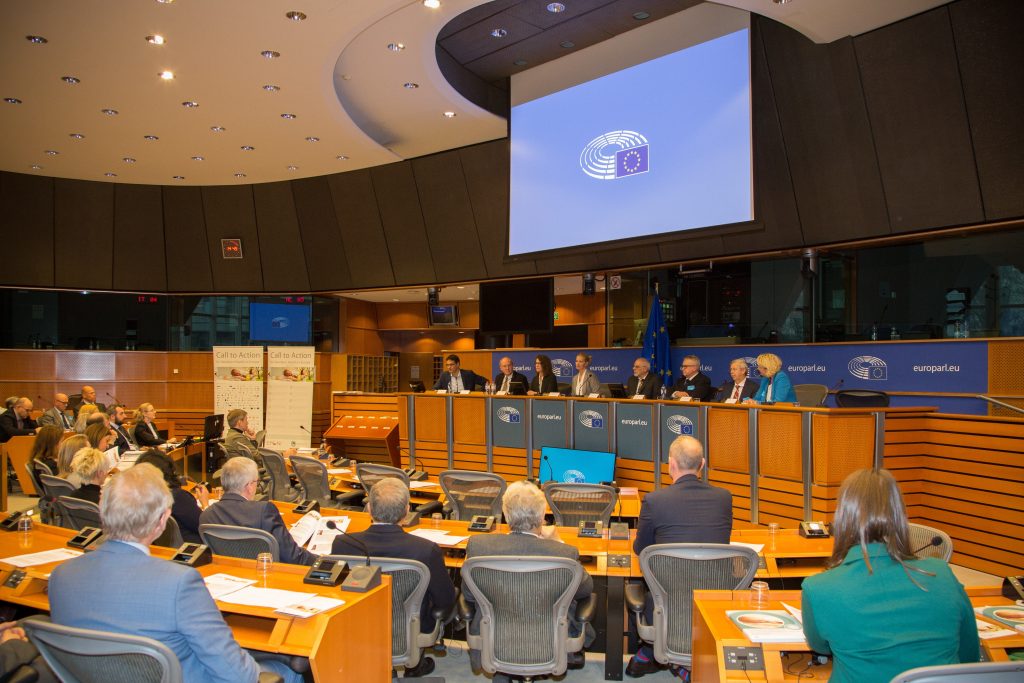
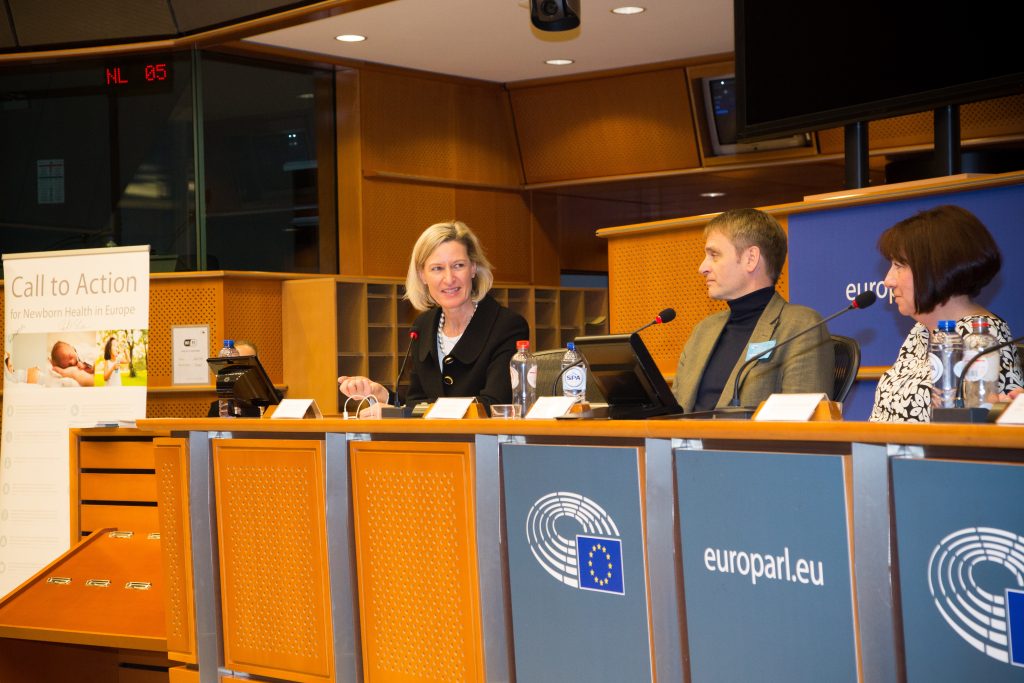
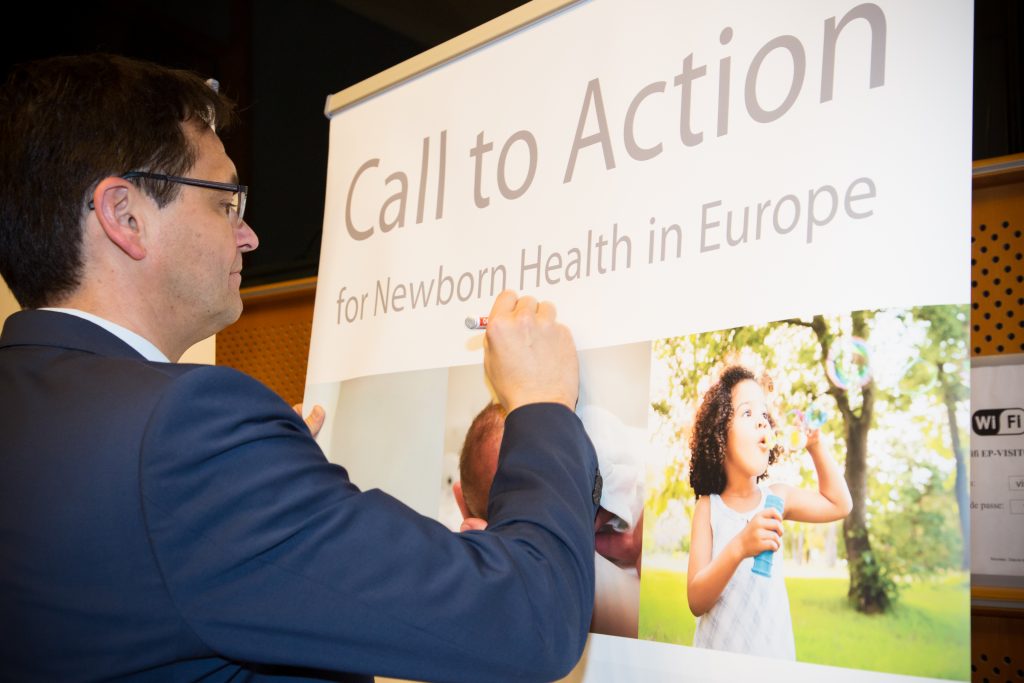
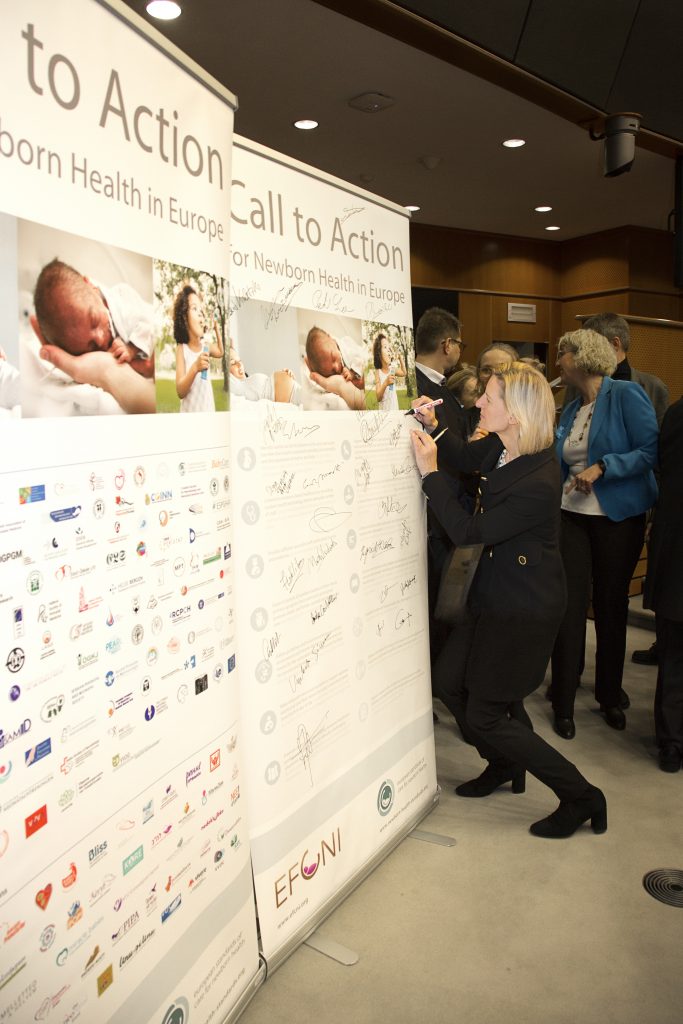
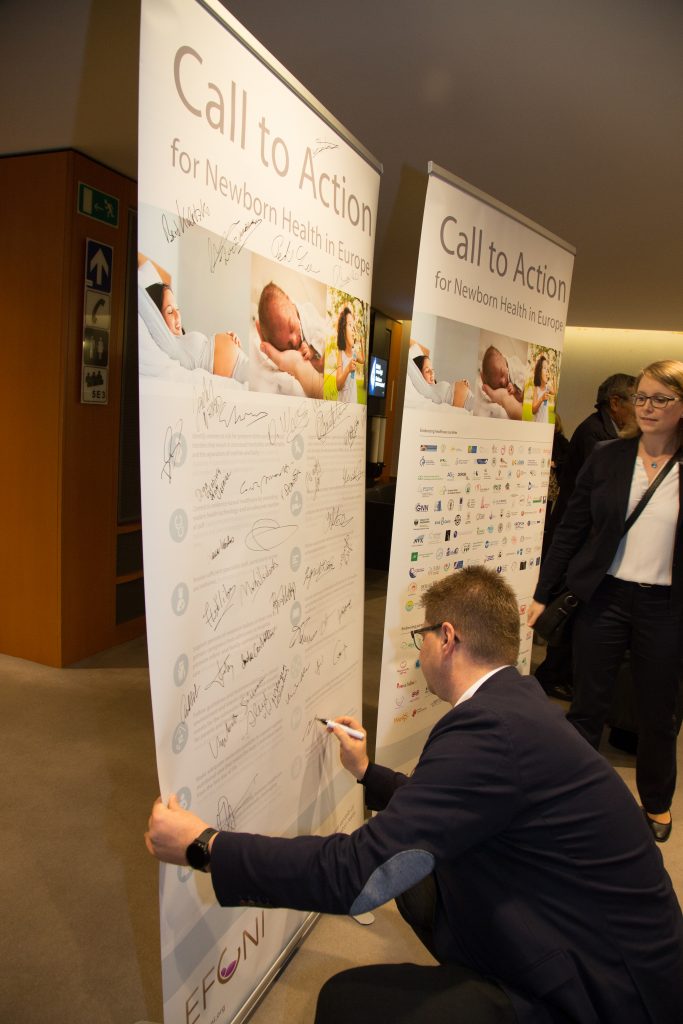
You are currently viewing a placeholder content from Facebook. To access the actual content, click the button below. Please note that doing so will share data with third-party providers.
More InformationYou are currently viewing a placeholder content from Instagram. To access the actual content, click the button below. Please note that doing so will share data with third-party providers.
More InformationYou are currently viewing a placeholder content from X. To access the actual content, click the button below. Please note that doing so will share data with third-party providers.
More Information